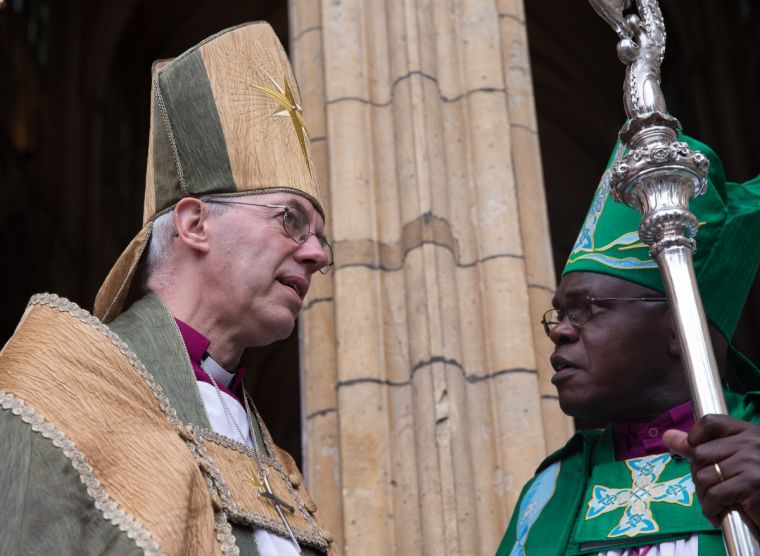A lot of people are upset by the Archbishops' latest on gays: Here's why

The statement by the Archbishops of Canterbury and York marking the anniversary of the decriminalisation of homosexuality, in which they state that sin 'is the same for all of us', is a very interesting and revealing statement.
On the one hand, the Archbishops seem to want to signal something important by making a statement at all on the anniversary of the Sexual Offences Act; there was no particular need to do so, as I don't think any one had stated an expectation that they would.
On the other hand, they immediately move on to a discussion of the nature of sin and our failure to live by God's standards, which they don't appear to associate with the Church's failure to affirm gay people, so leave open the interpretation that it is same-sex sex which is sinful, but that we all sin in different ways. This is certainly the way it has been interpreted on Thinking Anglicans, to judge by the comments there.
So the statement continues a pattern of studied ambiguity – which not many are finding helpful. Within the debate about the planned teaching document, there was mention several times that the current understanding of marriage was not going to change, and that Scripture remained the authoritative touchstone for Anglican theology, properly done.
Yet the other actions of the Archbishops at Synod, including the repetition of the phrase 'radical new Christian inclusion' and the Archbishop of York's intervention at the end of the two contentious debate, have enraged 'traditionalists' and led directly to the open letter calling for a new Anglican orthodoxy. Justin Welby pointedly welcomed the Primate of the Scottish Episcopal Church, and said 'we have things to learn from them' – following their decision to revise the canons of marriage, an action which only last year was described as 'tearing the fabric of the Communion' and which merited 'consequences'.
So which is it?!
On the other hand, this statement appears to have enraged 'revisionists' who believe the Archbishops 'just don't get it'. It means that the Archbishops are in serious danger of having the confidence of neither side, and I think that is unhelpful and problematic, and certainly undermines Justin Welby's concern for reconciliation. Trying to appease both ends of the debate actually ends up alienating everyone – and fosters a deep sense of suspicion. For each group, affirmative comments don't draw their attention, since each group believes that this is the minimum they should expect. What does get a response from both sides are statements that appear to compromise the support that is desired, as illustrated in one response to the statement: 'If that is what the Church is still to teach, then all your other words are vacuous, patronising, and a side-stepping of your continuing prejudice and vilification of decent LGBT lives.'
I cannot help feeling that the Archbishops should stop making (what appear to be) ad hoc responses to specific events, like this one and the statement after the February Synod. A much more fruitful approach would be unapologetically to commit to upholding the teaching of the Church, without the attempt to ingratiate other groups with ambiguous statements. All parties would then at least know where they stood, and we could have an honest discussion about the points of disagreement.
Rev Dr Ian Paul is a member of the Archbishops' Council, and blogs at www.psephizo.com











